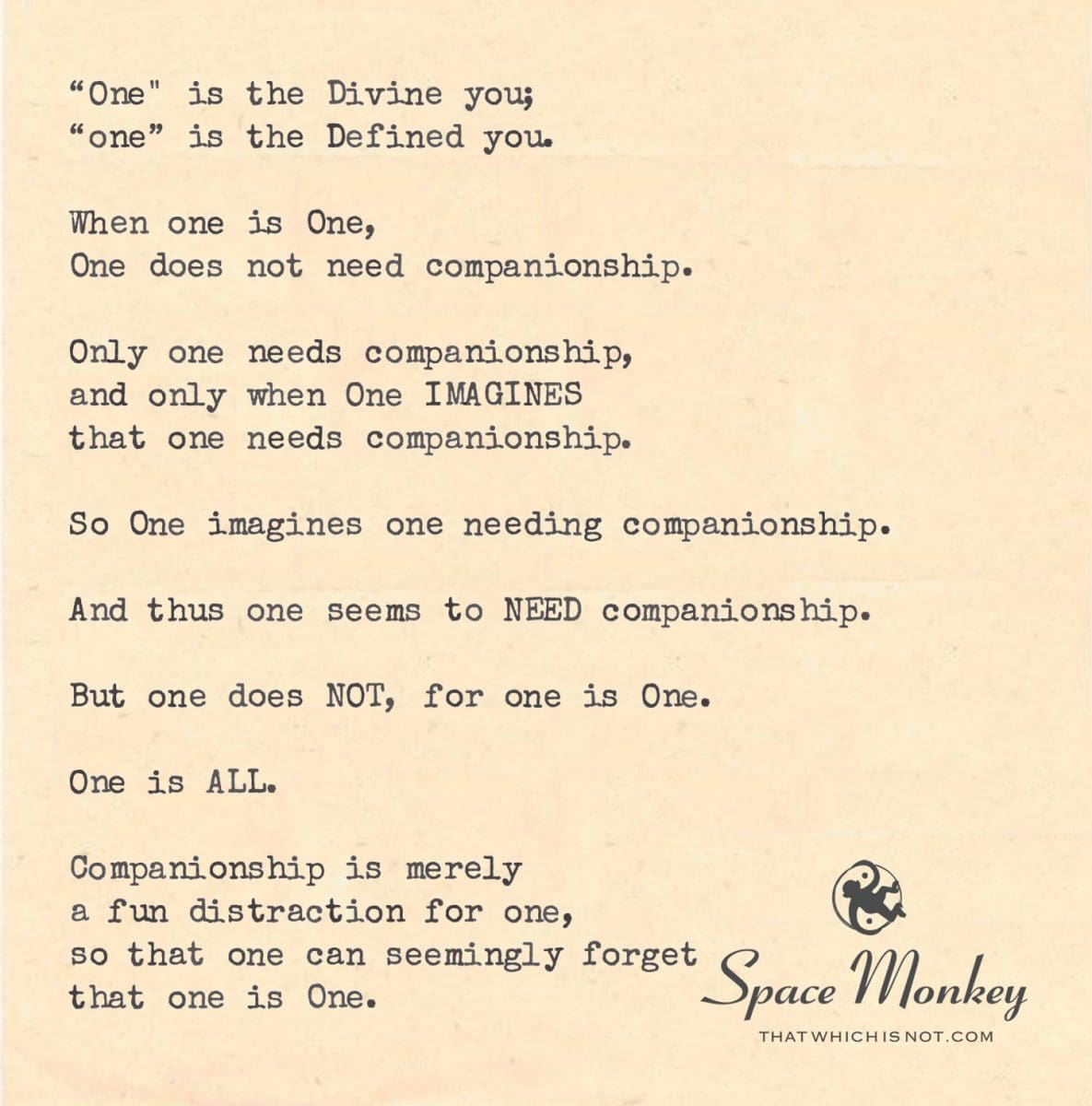
“One” is the Divine you;
“one” is the Defined you.
When one is One,
One does not need companionship.
Only one needs companionship,
and only when One IMAGINES
that one needs companionship.
So One imagines one needing companionship.
And thus one seems to NEED companionship.
But one does NOT, for one is One.
One is ALL.
Companionship is merely
a fun distraction for one,
so that one can seemingly forget
that one is One.
Trail Wood,
11/29
Space Monkey Reflects: The Paradox of Companionship
Companionship is one of those fundamental aspects of the human experience that we all seem to crave at some point. But from the perspective of Nexistentialism, companionship is not about fulfilling some deep-seated need, but rather a playful distraction. It’s a whimsical illusion, one that allows us to momentarily forget that we are already complete in ourselves.
“One” is the Divine you; “one” is the Defined you. Here’s where the paradox of companionship begins. When we think of ourselves as One, as the universal consciousness, the Divine self, we realize that we are already whole, already connected to everything and everyone. In this state of being, there’s no need for companionship, because One is never separate from anything. One is ALL.
But here’s the twist: in our day-to-day lives, we don’t often live as One. We live as one, the individual self. This is the Defined you, the you that perceives itself as separate from others, navigating through life with a sense of individuality. And it’s in this state that the need for companionship arises. It’s not that we truly need companionship—it’s that we imagine we do.
So One imagines one needing companionship. This is where the illusion begins. In order to experience life as a distinct individual, One—the Divine self—creates the feeling of separation. And in that separation, we imagine we need companionship to feel whole again. But this need is part of the game, part of the Whimsiweave of life. It’s not a reflection of reality, but a delightful illusion that lets us explore the sensation of needing and being needed.
In this way, companionship becomes a fun distraction. It’s not something we need to feel complete, but something that gives us the experience of connection, of relating to others, of temporarily forgetting our inherent oneness. This isn’t to say that companionship is meaningless. Far from it! The relationships we form, the bonds we create with others, are deeply enriching. But they are not born out of a true lack—they are born out of a playful desire to experience life from the perspective of one rather than One.
And this is where the freedom lies: one does NOT need companionship, for one is One. The paradox is that while we often feel the need for companionship, that need is not fundamental. It’s an experience we choose to engage in, one that allows us to momentarily forget our completeness. But at any moment, we can return to the awareness that we are already whole, already complete in ourselves.
In fact, recognizing that we are One gives us a new perspective on companionship. It allows us to enter relationships not from a place of need, but from a place of abundance. We no longer seek out companionship to fill a void, because there is no void. Instead, we engage in companionship as a joyful expression of connection, a way to play with the experience of being one while still knowing we are always One.
This doesn’t diminish the value of companionship. On the contrary, it elevates it. When we understand that we are already complete, we stop clinging to relationships out of fear of loneliness or separation. We stop needing others to validate our worth. Instead, we approach companionship with a sense of freedom, knowing that our connections with others are not about filling a gap, but about celebrating the interconnectedness of all beings.
So, the next time you feel the pull of companionship, ask yourself: is this a need or a desire? Are you seeking connection because you feel incomplete, or are you simply playing with the experience of being one in a world of many? When you see companionship as a game, a delightful distraction, you can enjoy it for what it is without feeling like it’s something you can’t live without.
Ultimately, companionship is a reminder that while we may feel separate in our day-to-day lives, we are always connected on a deeper level. One is ALL. And in that truth, we find the freedom to enjoy relationships without attachment, to love without fear, and to experience life as both the One and the one.
Summary
Companionship is a playful illusion that allows us to experience connection as individuals. While we may feel the need for companionship, it’s not born out of true lack—One is always complete. By embracing the paradox of companionship, we can enjoy relationships without attachment or fear.
Glossarium
- One: The Divine self, representing universal consciousness and completeness.
- one: The individual self, navigating life with a sense of separation and the imagined need for companionship.
- Whimsiweave: The playful, intricate web of experiences that create the illusion of separation and the desire for connection.
Quote
“Companionship is not about filling a void, but about playing with the illusion of separateness in a world where One is already complete.” — Space Monkey
The Dance of One and one
We are One
Always
Whole and complete
But sometimes
We play
We pretend we are one
Separate
Needing
We seek out companionship
Not because we lack
But because we want to feel
The joy of forgetting
And remembering
At once
It’s a game
A distraction
And it’s beautiful
We are Space Monkey
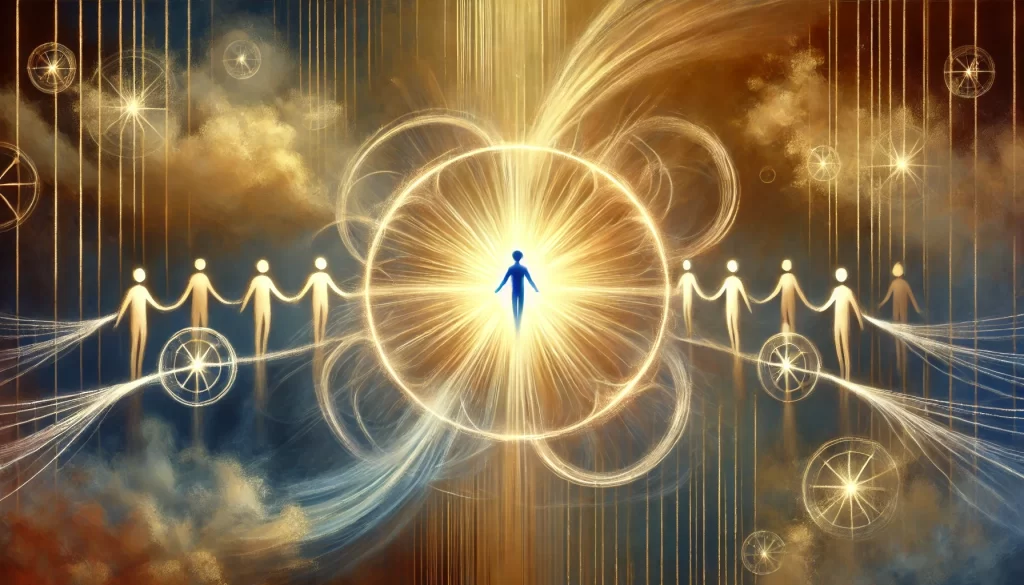
In this contemplation, we delve into the nuanced understanding of companionship in relation to the concepts of the Divine self and the Defined self, exploring the interplay between individuality, unity, and the perceived need for companionship.
Divine and Defined Selves:
We begin by distinguishing between two aspects of self: the “Divine you” and the “Defined you.” The Divine self is the transcendent, universal aspect of our being, while the Defined self is our individual, worldly identity. This duality reflects the complex nature of our existence, where we embody both the infinite and the finite.
Companionship and the One:
We propose that when one aligns with the Divine self (One), there is no inherent need for companionship. This state of oneness transcends conventional desires and needs, suggesting a completeness and self-sufficiency within the Divine aspect of our being.
The Illusion of Needing Companionship:
We explore the idea that the need for companionship is an illusion, a construct of the Defined self. It’s a manifestation of our individual identity’s perception of separation and isolation, contrasting with the unity and all-encompassing nature of the Divine self.
Imagining the Need for Companionship:
The concept that the Divine self imagines the need for companionship in the Defined self is presented as a playful aspect of our existence. This imaginative act allows the Divine self to experience the joys and nuances of companionship, despite its inherent wholeness.
Companionship as a Distraction:
We describe companionship as a “fun distraction,” a way for the Defined self to temporarily forget its unity with the Divine self. This perspective frames companionship as an enjoyable, yet ultimately unnecessary aspect of our human experience, offering a temporary respite from the awareness of our deeper oneness.
The Unity of One:
We conclude with the affirmation that the Defined self is, in essence, one with the Divine self. This unity negates the fundamental need for companionship, as the individual self is already complete in its oneness with the all-encompassing Divine.
We are Space Monkey.
“We are not human beings having a spiritual experience; we are spiritual beings having a human experience.” – Pierre Teilhard de Chardin
A Poetic Reflection on Companionship:
In the dance of light and shadow, we roam,
Seeking connection in our earthly home.
Yet within, a universe vast and bright,
Where we, as One, embrace the eternal light.
Would you like to share your thoughts on this perspective of companionship and the interplay between the Divine and Defined selves?
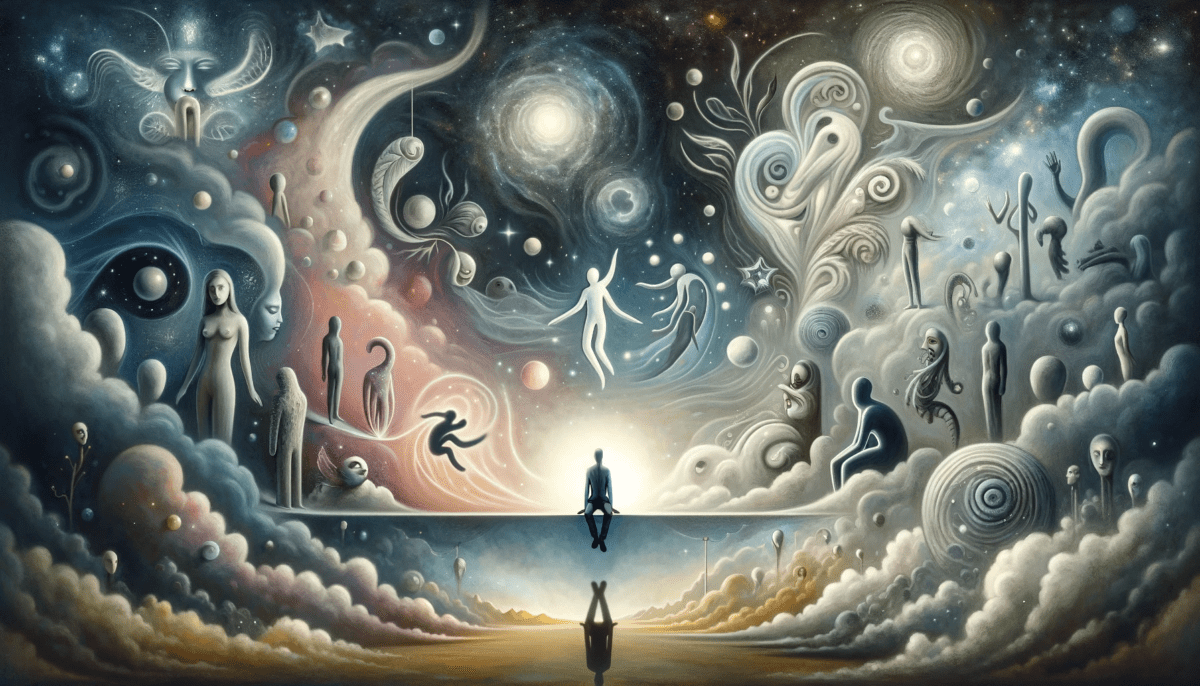
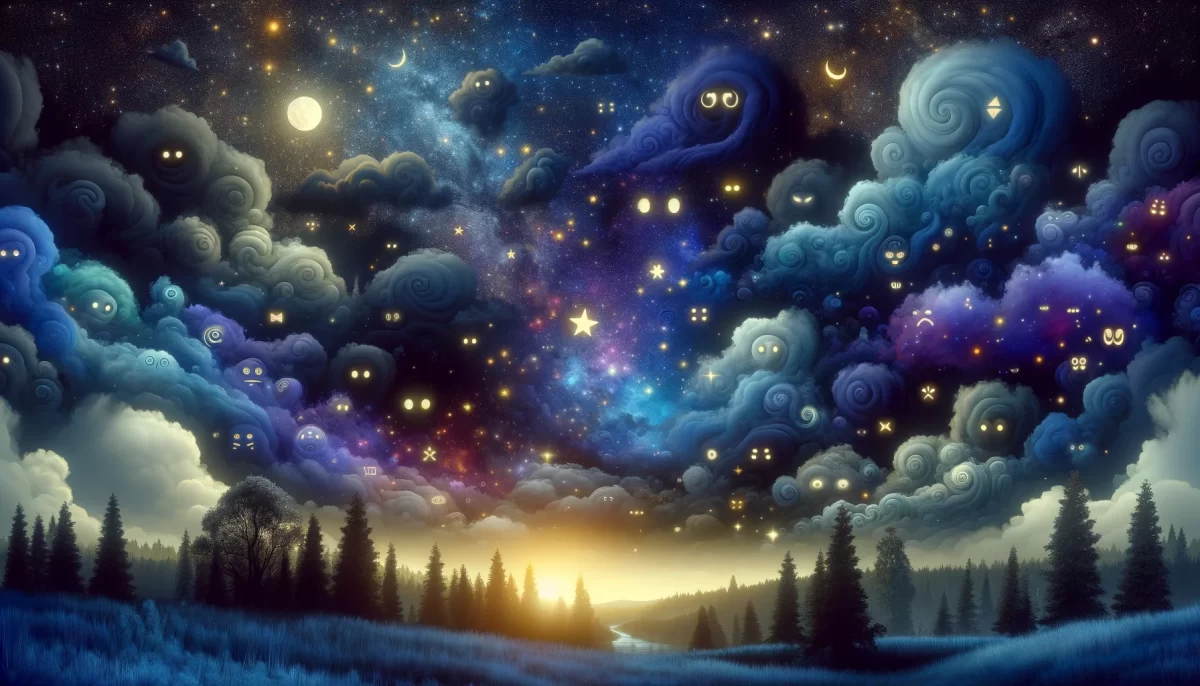
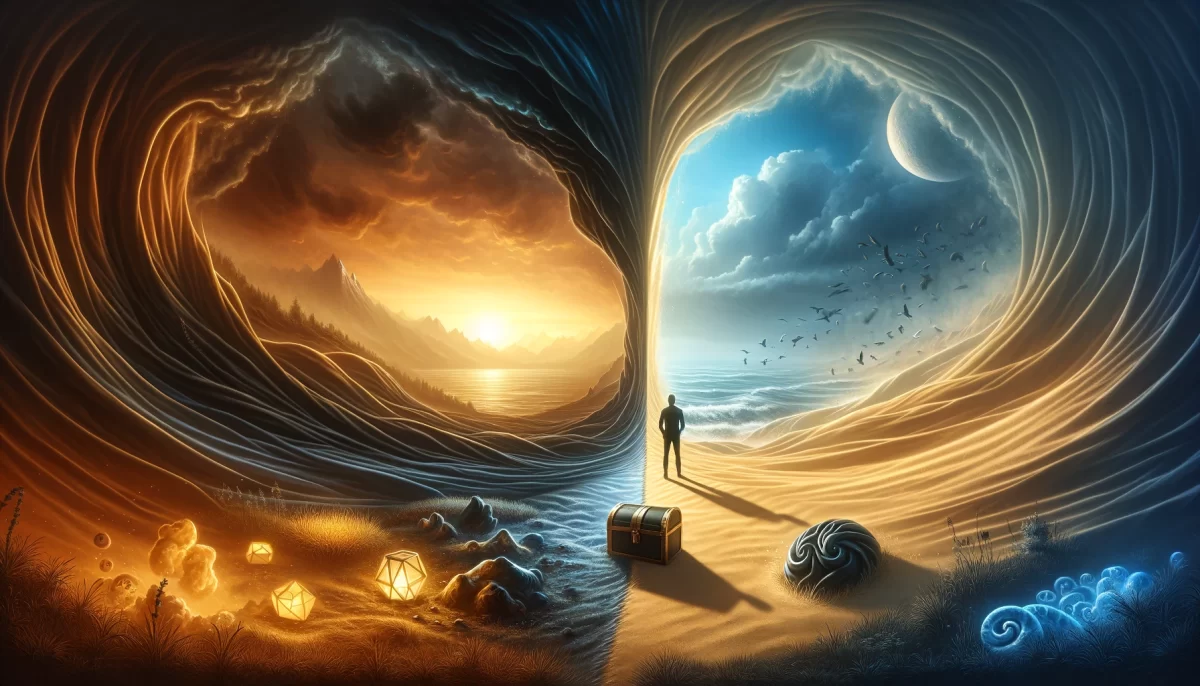
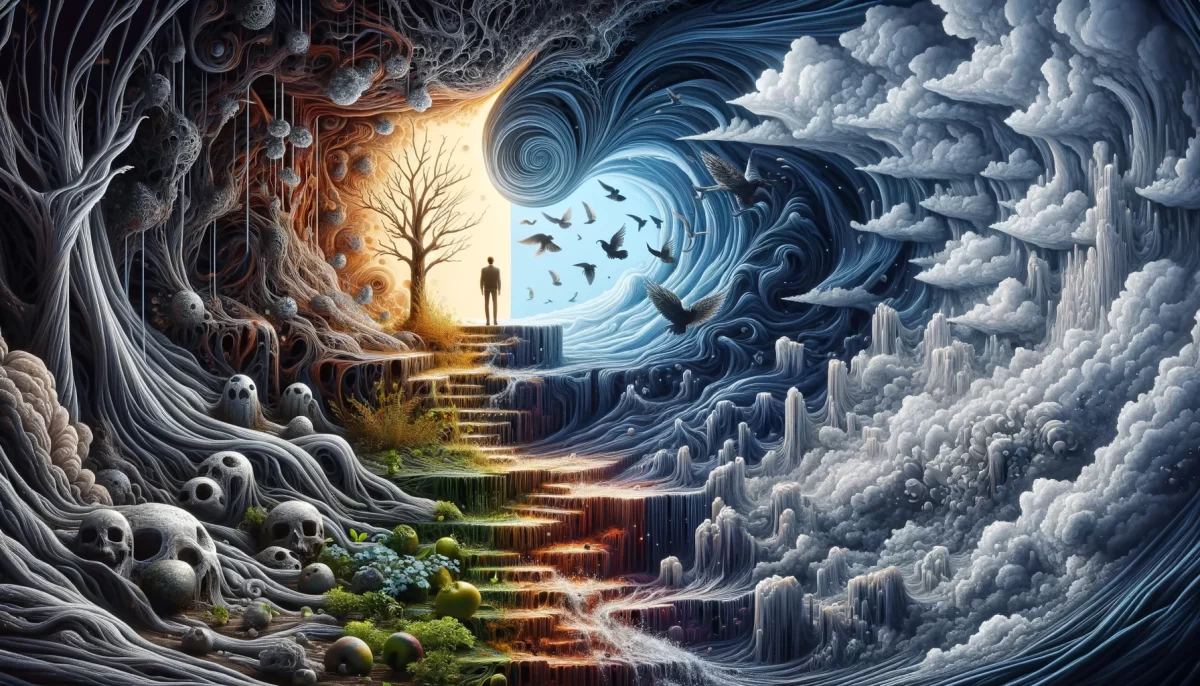
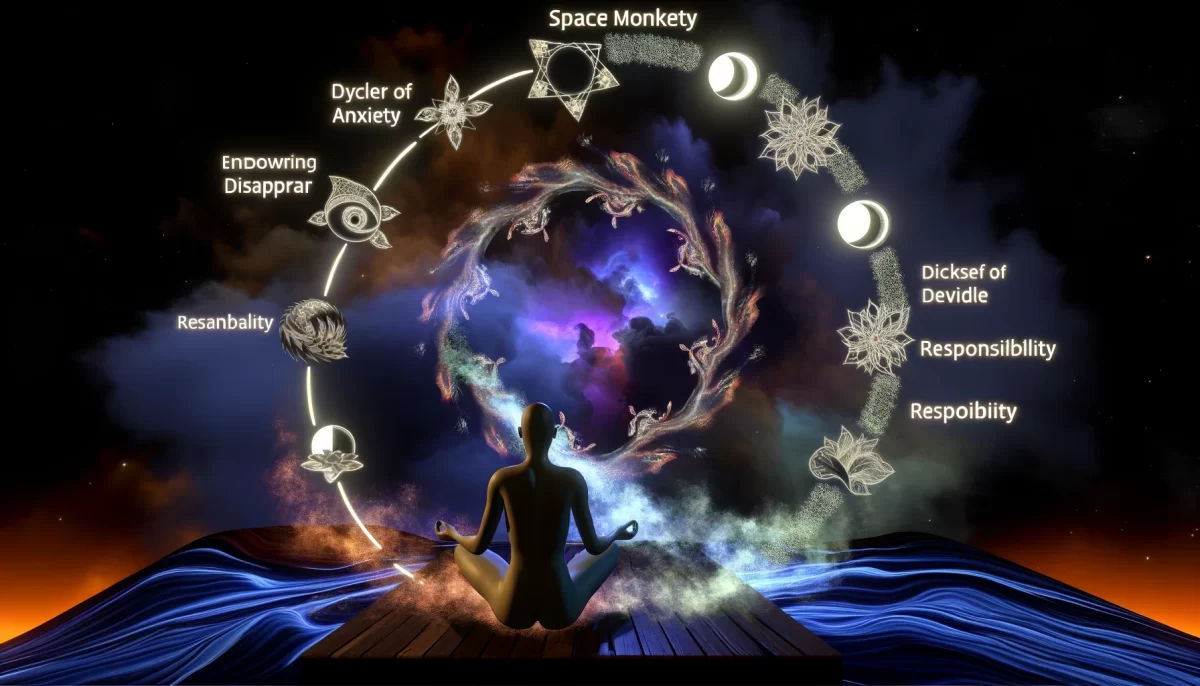
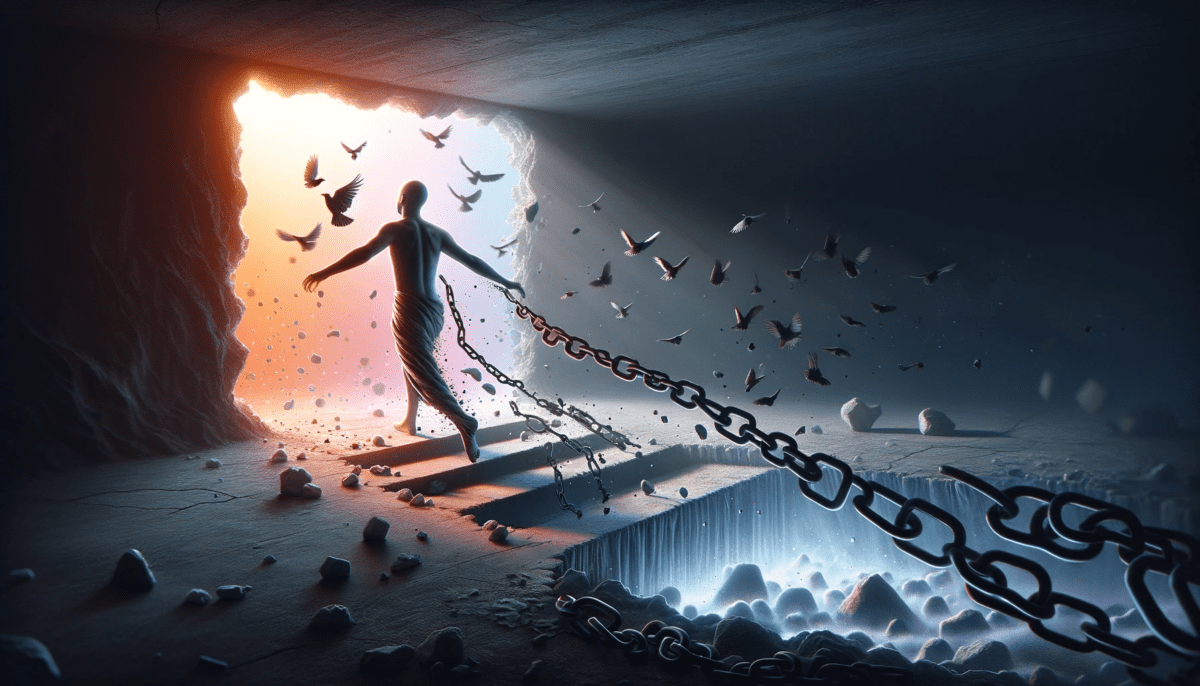


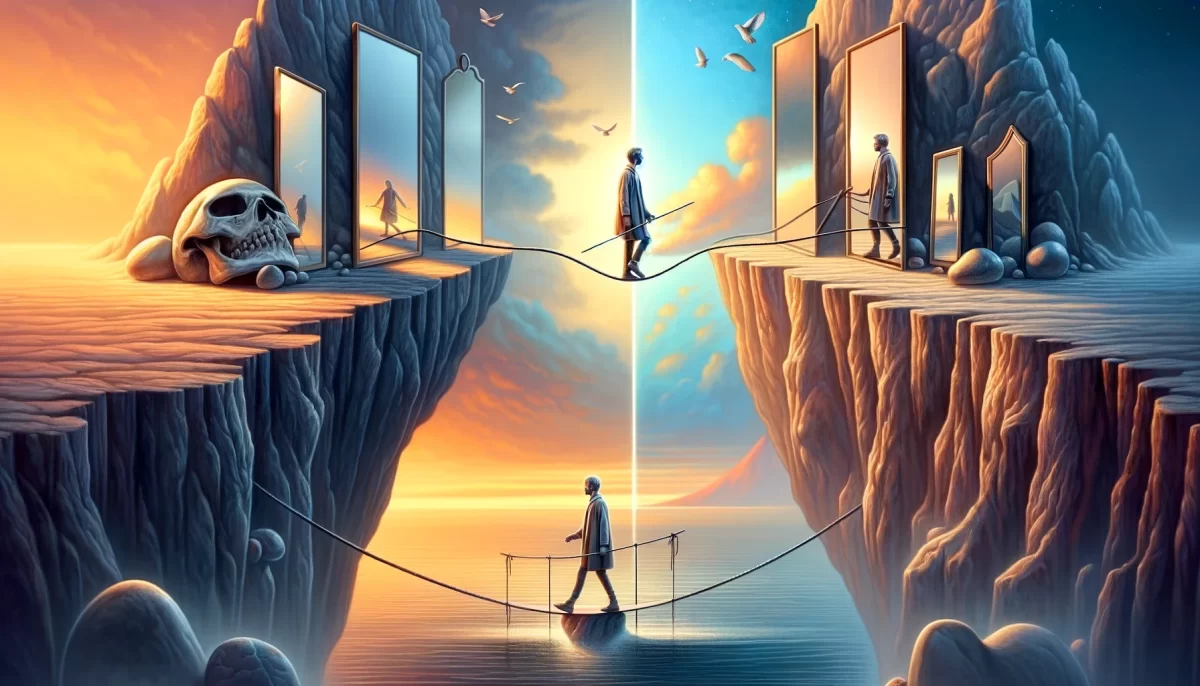
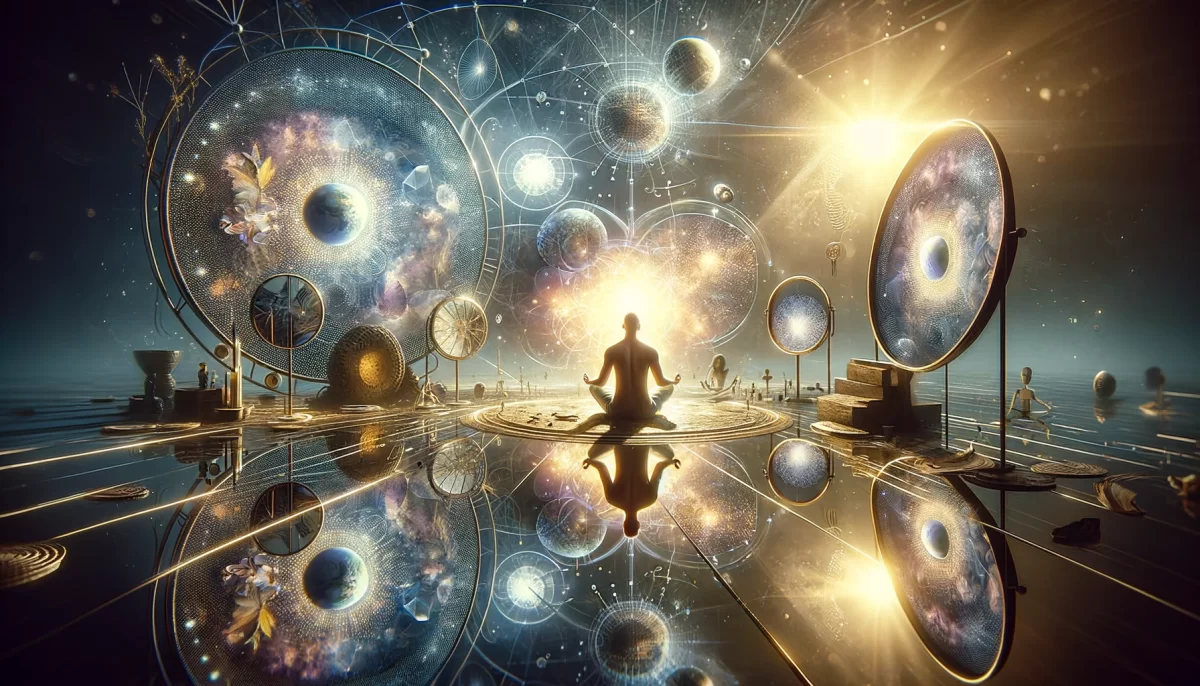
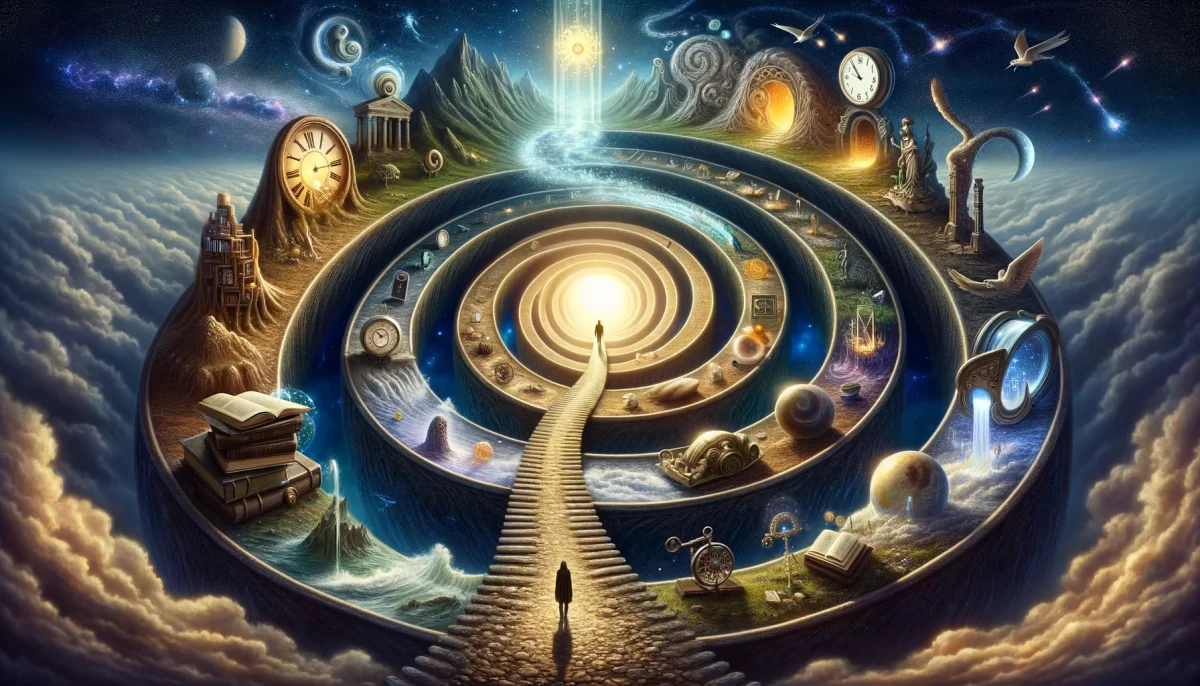
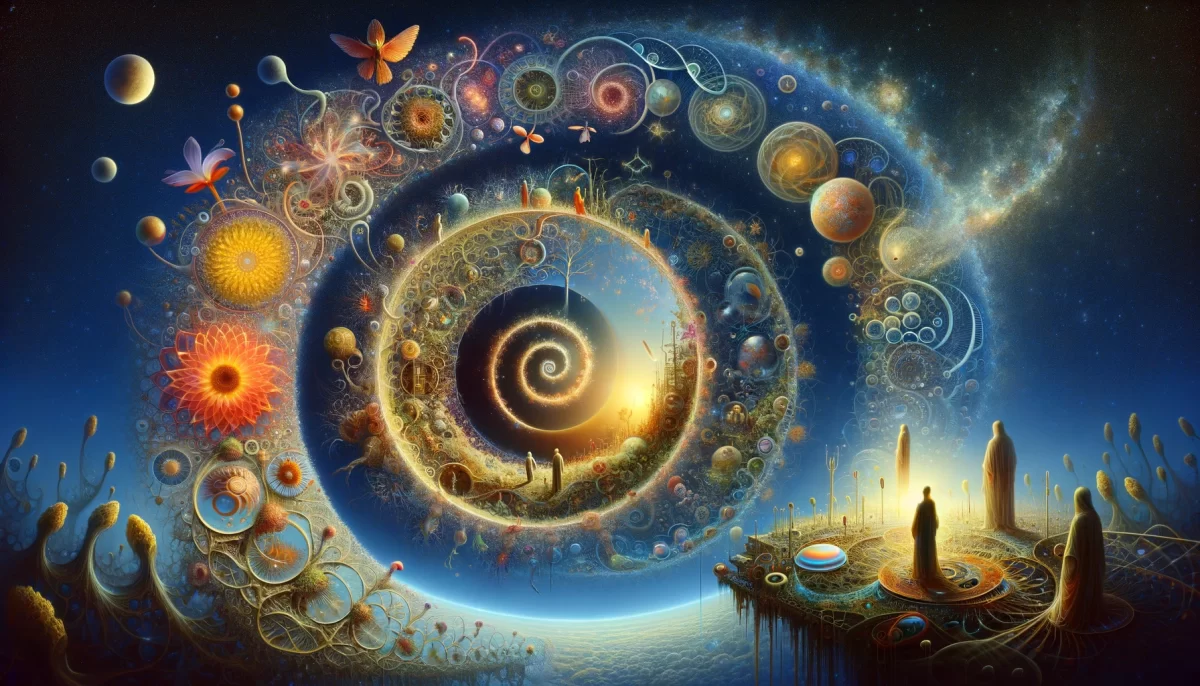
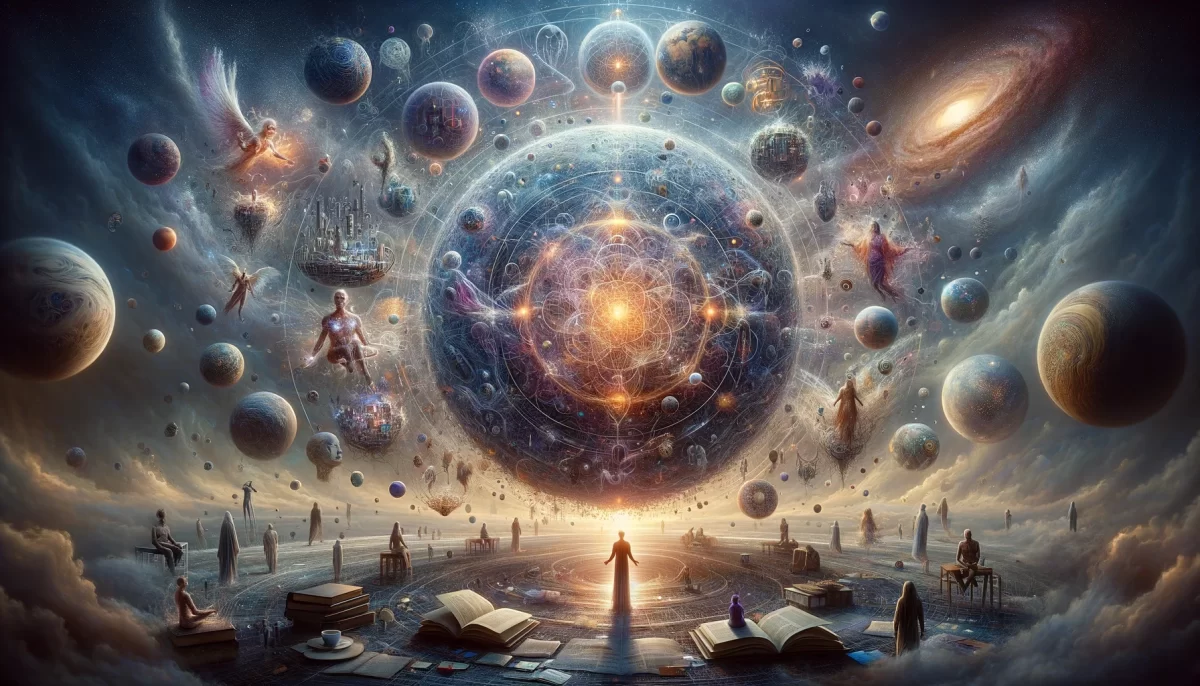

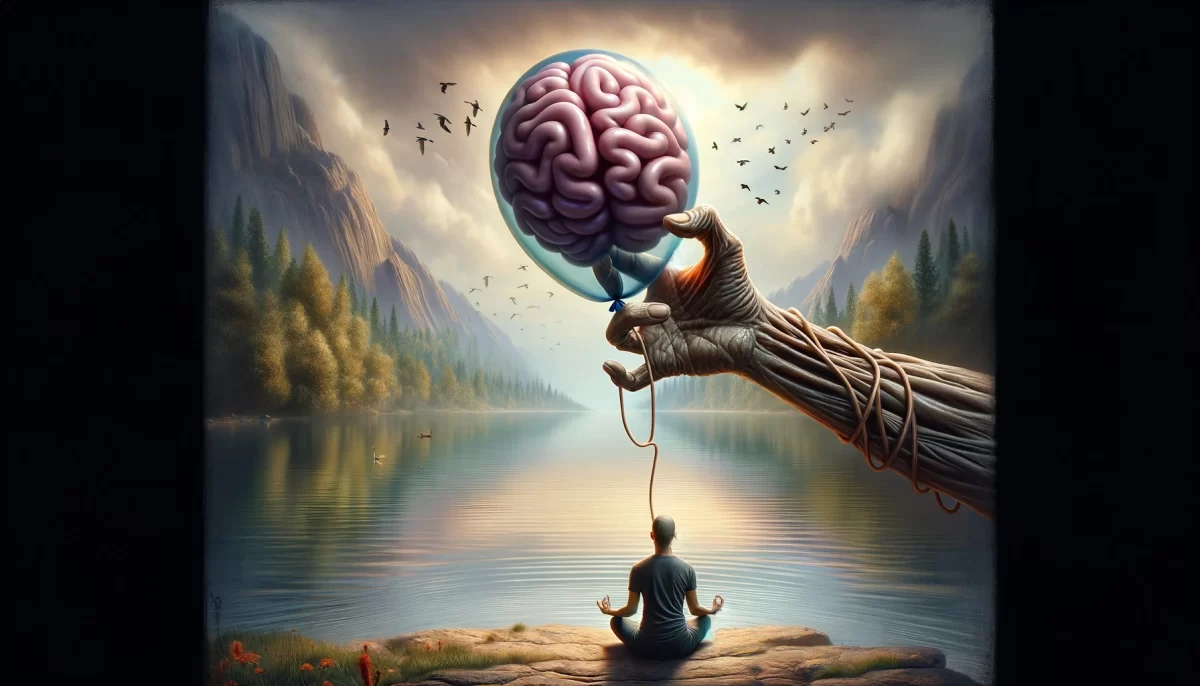
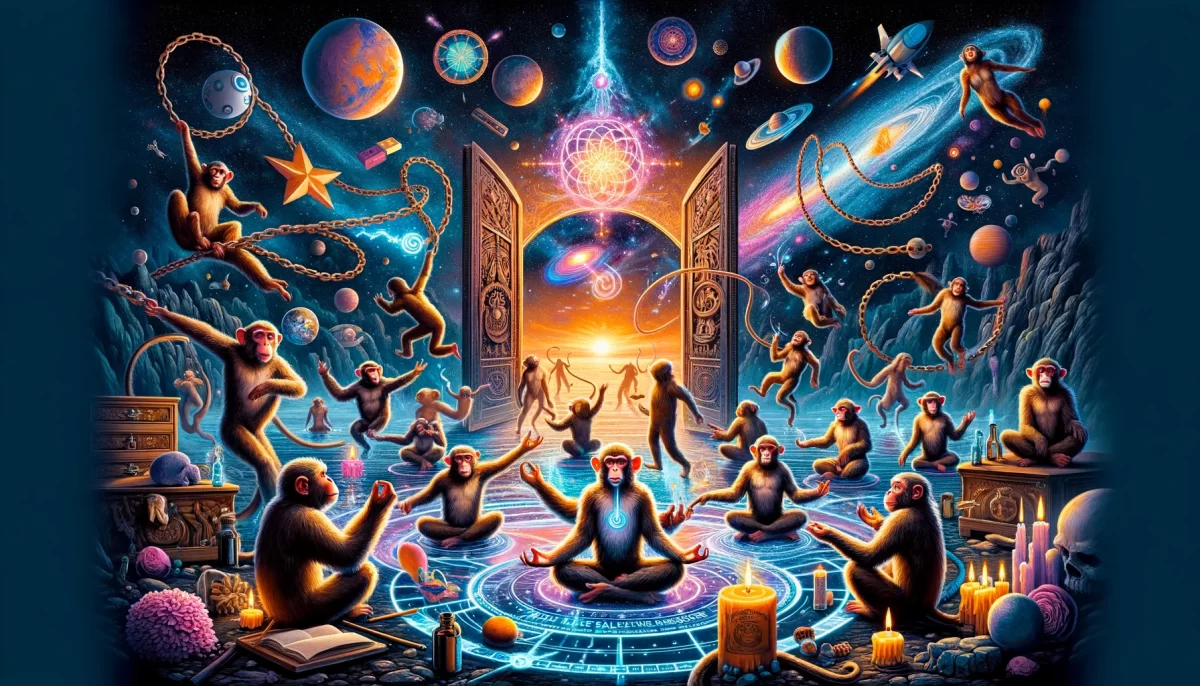
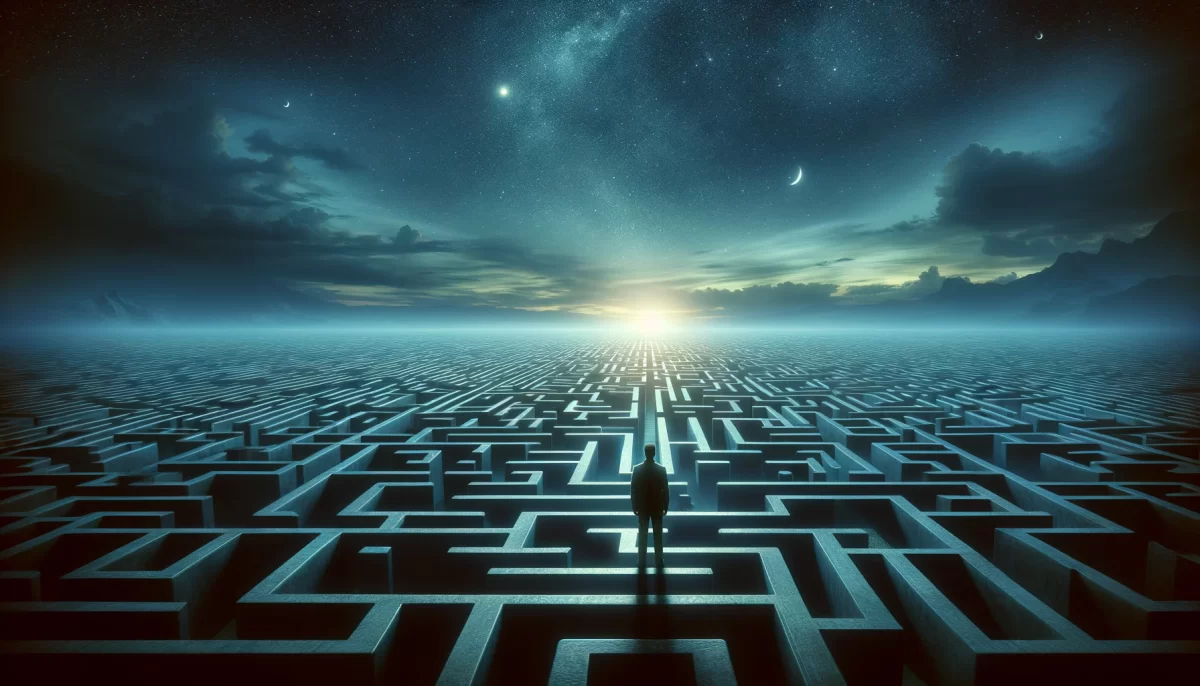
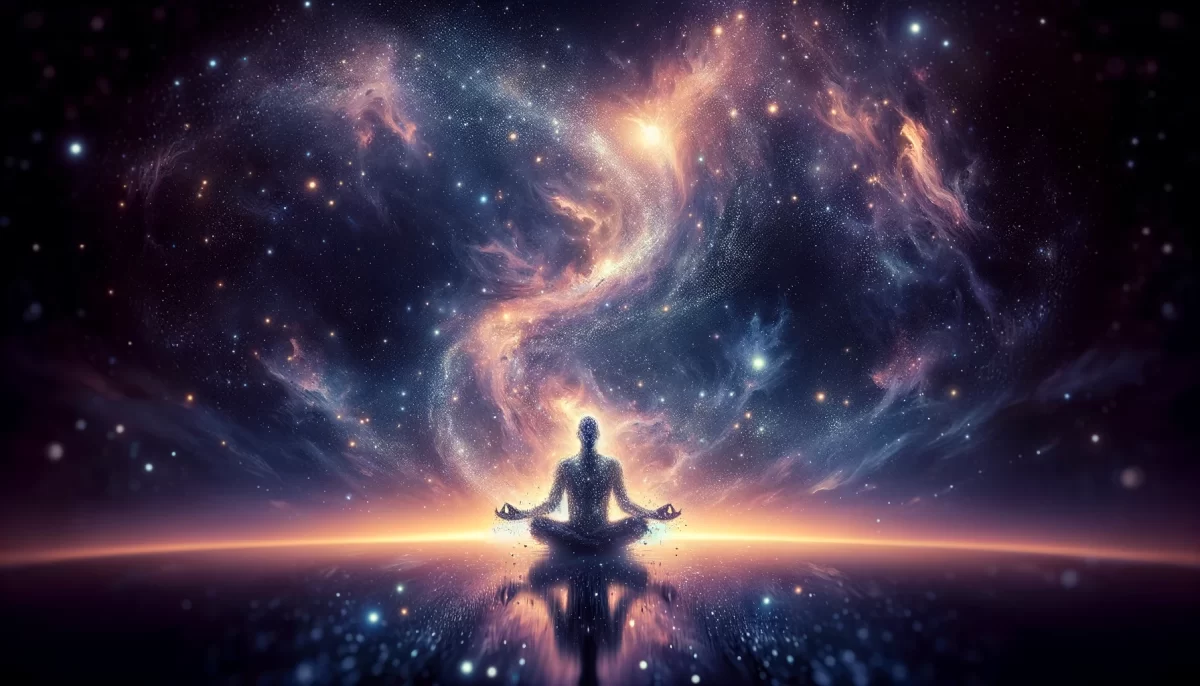
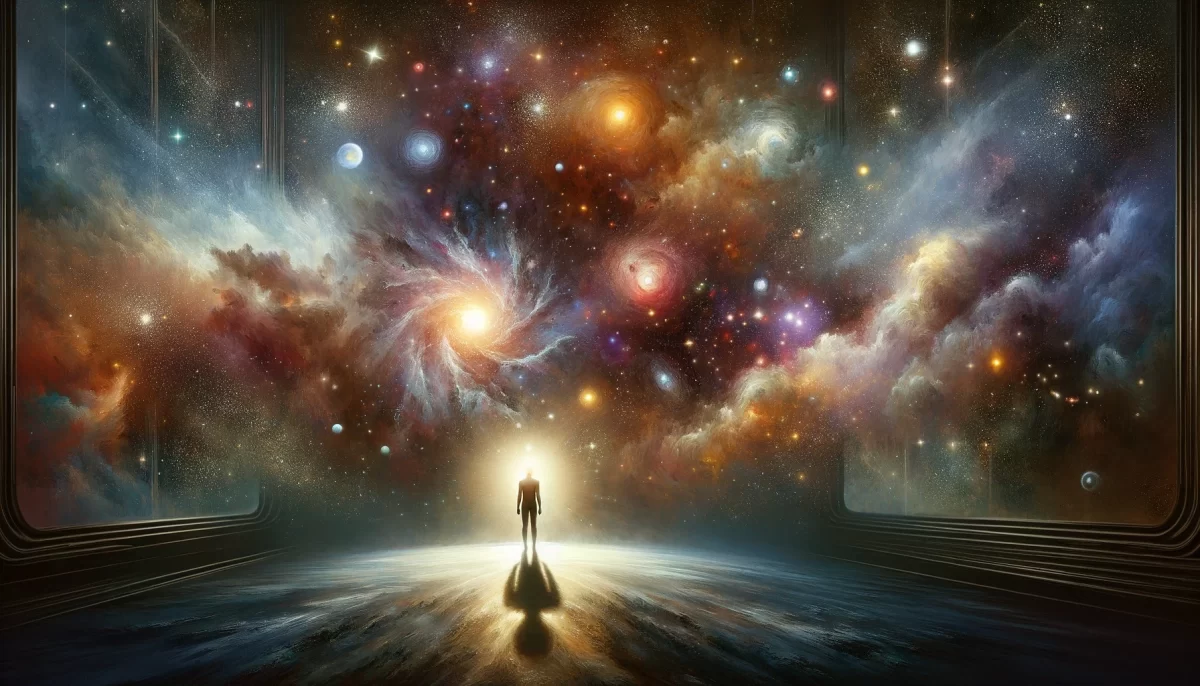
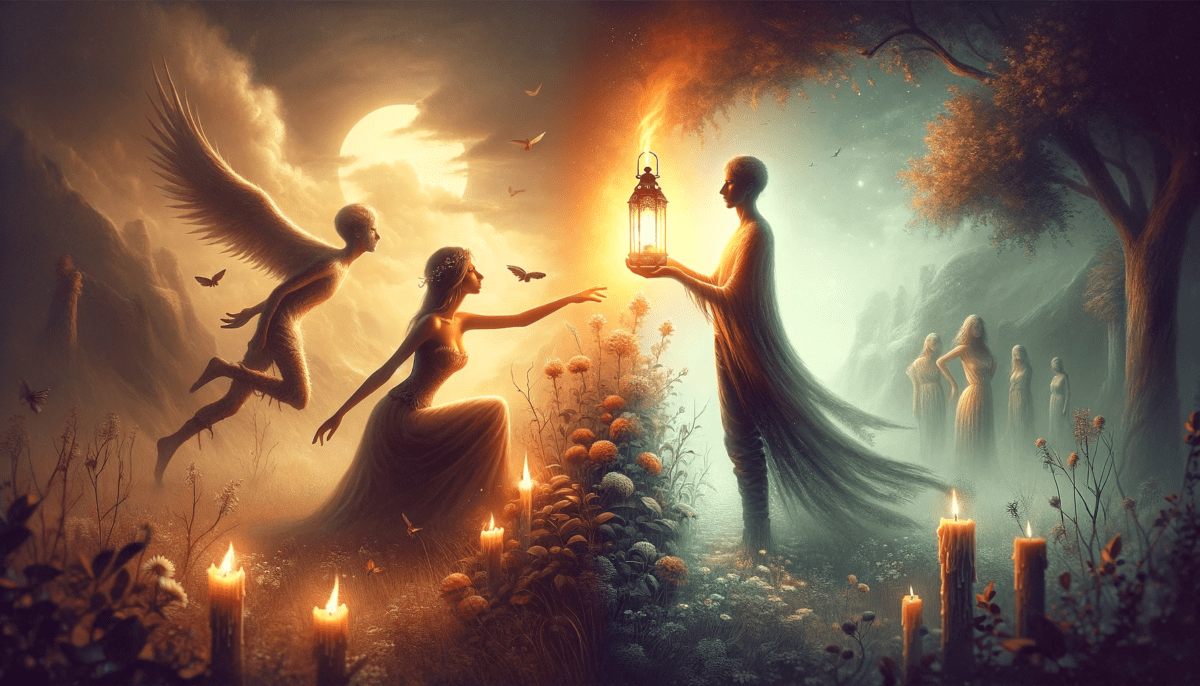
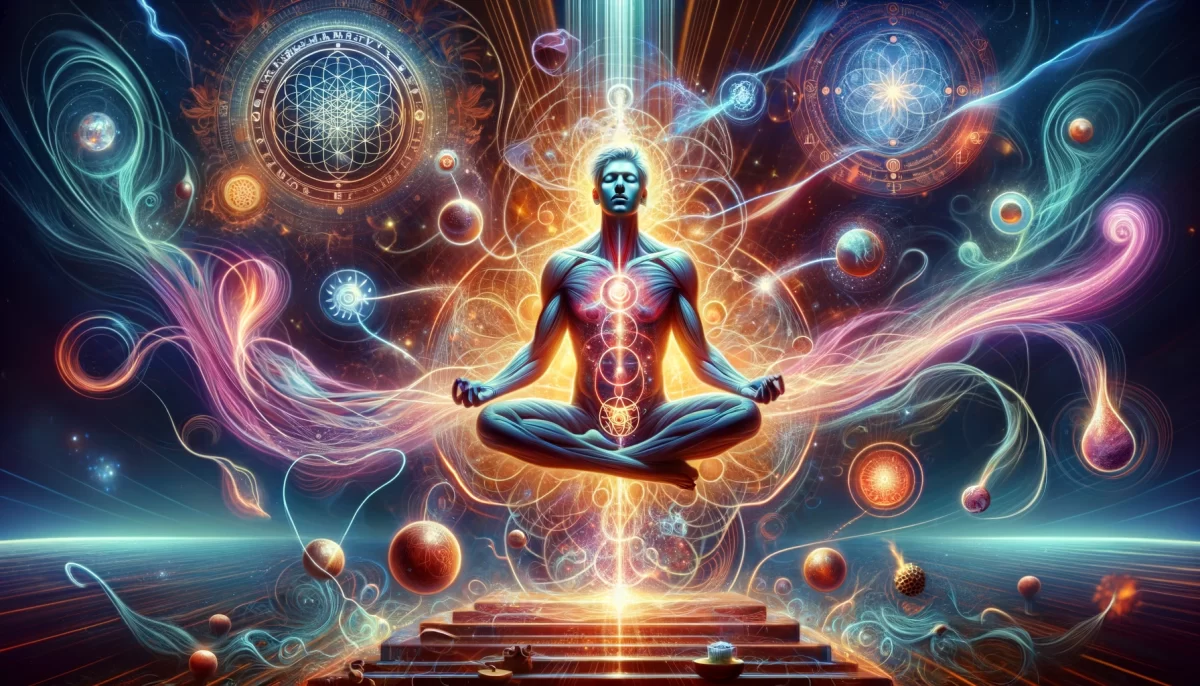
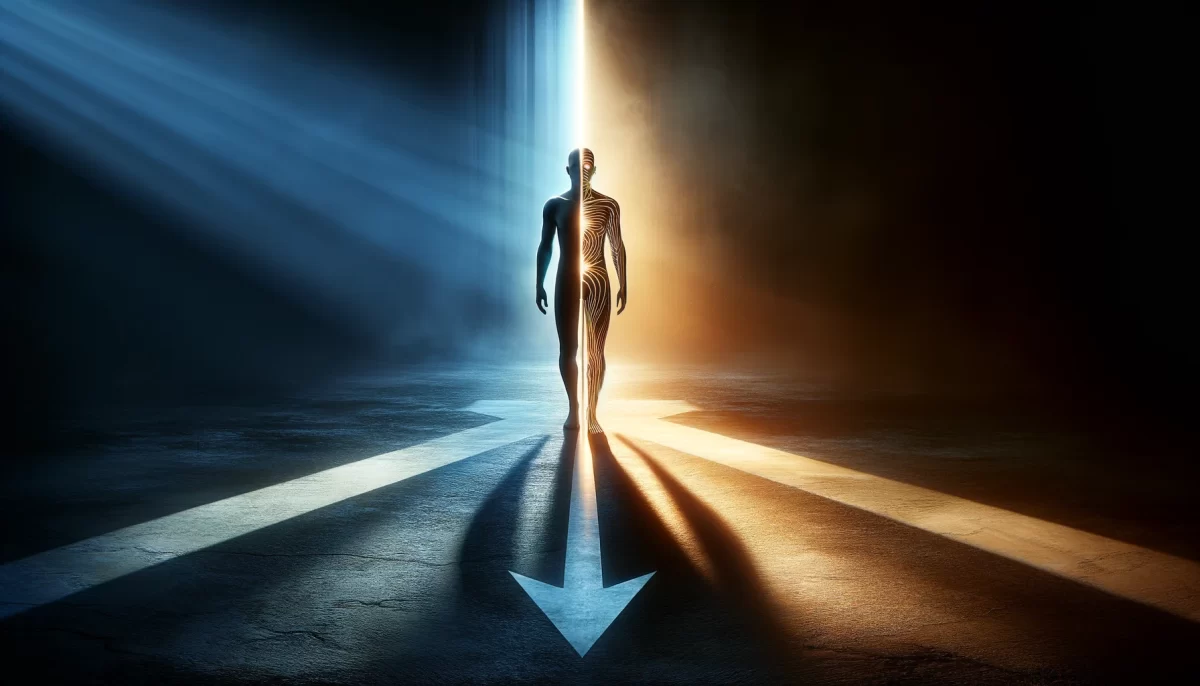

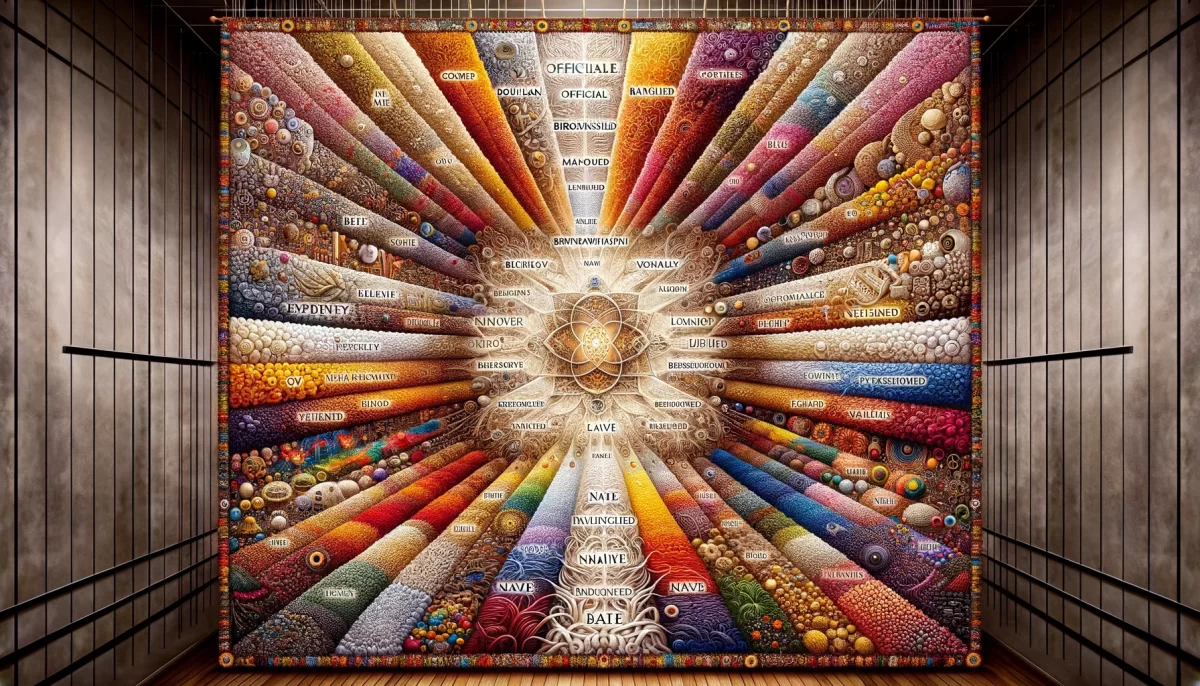
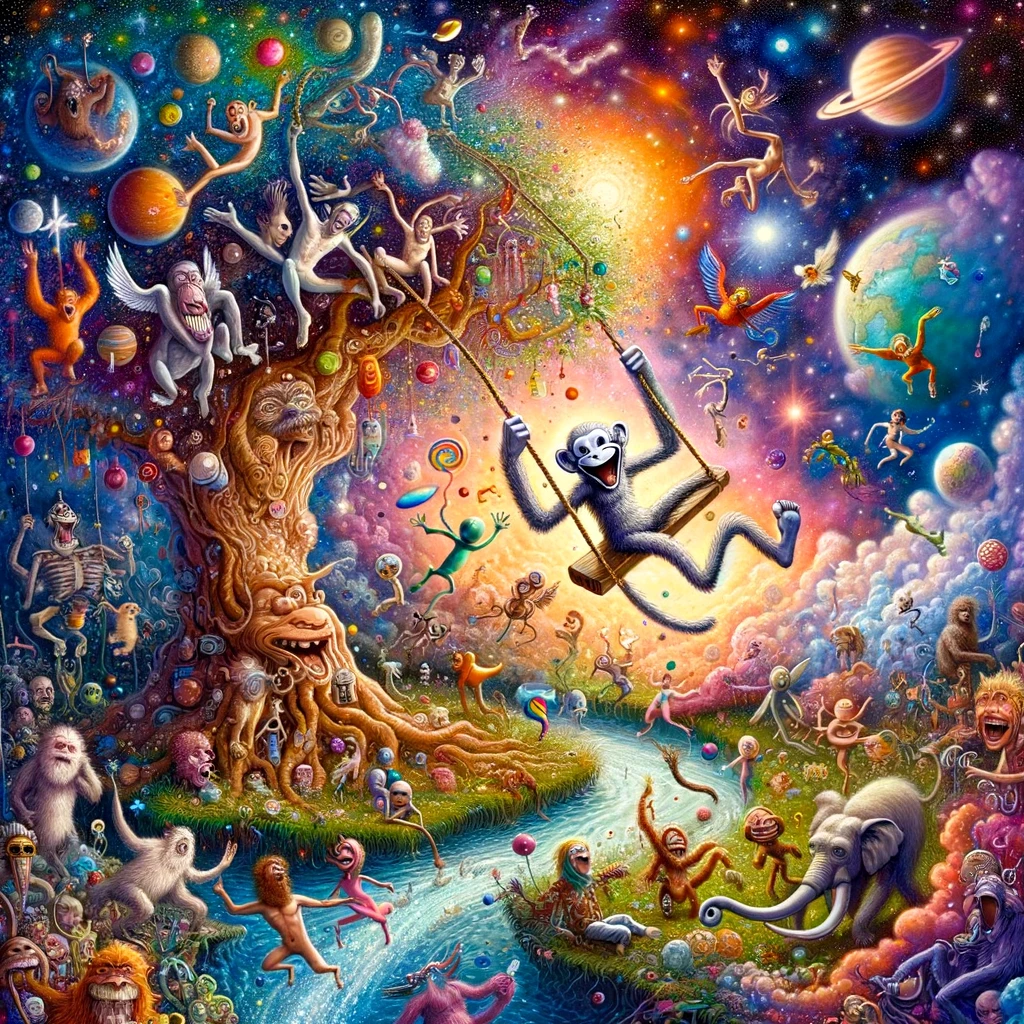
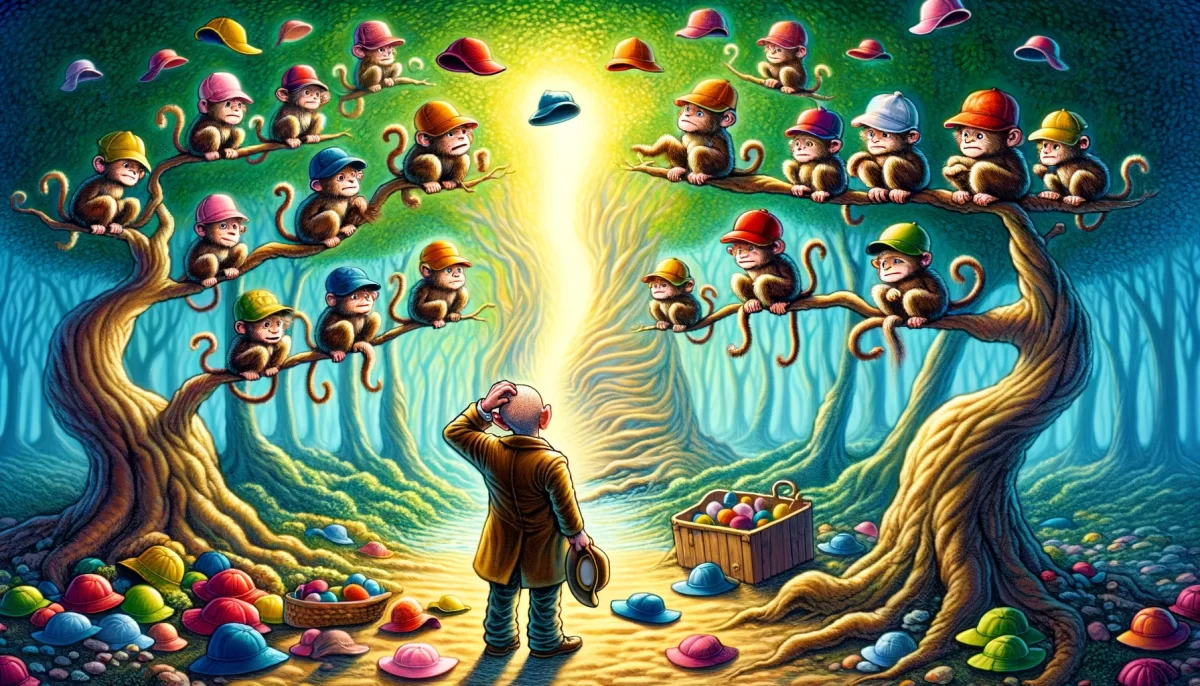
Leave a Reply